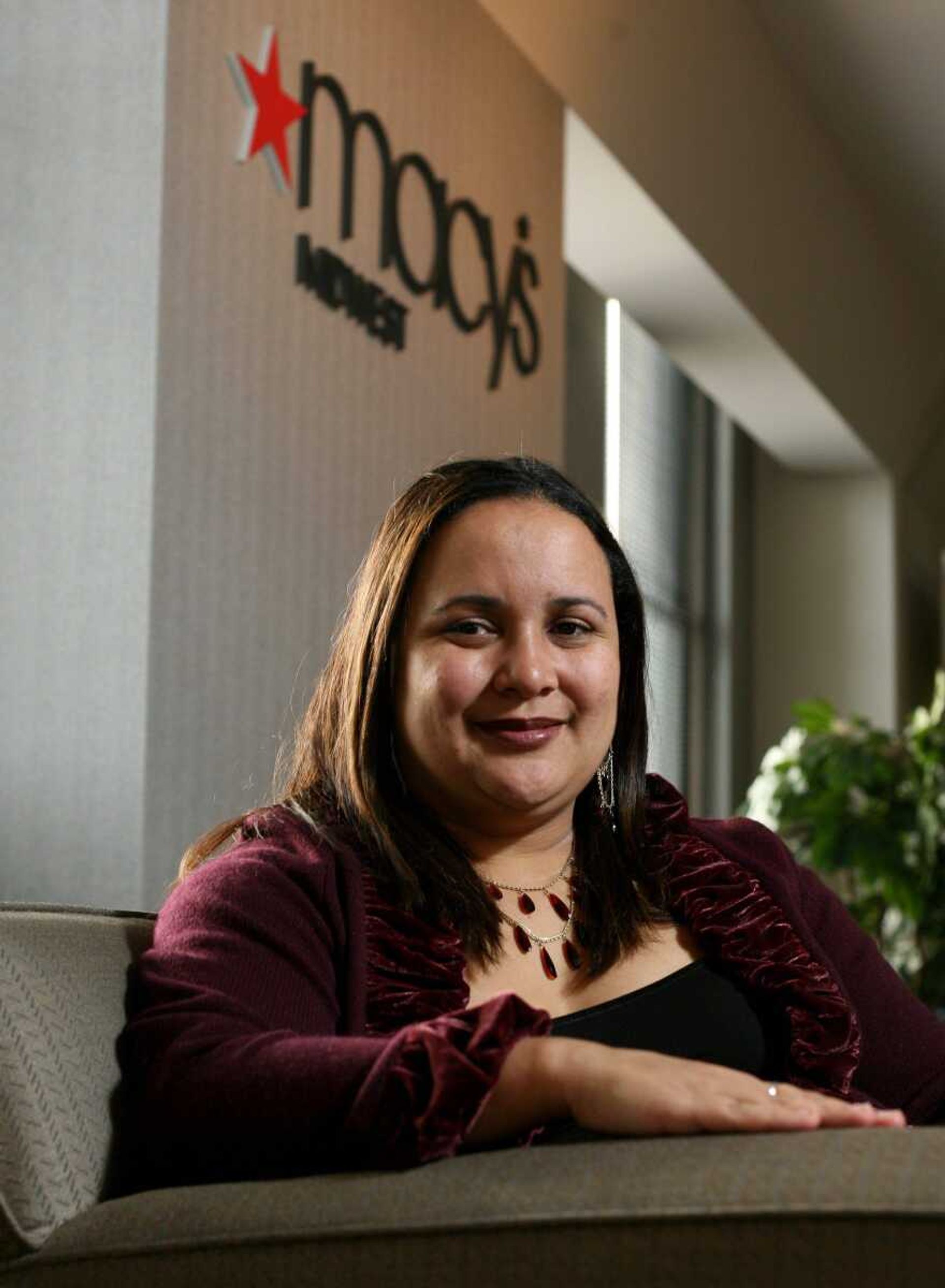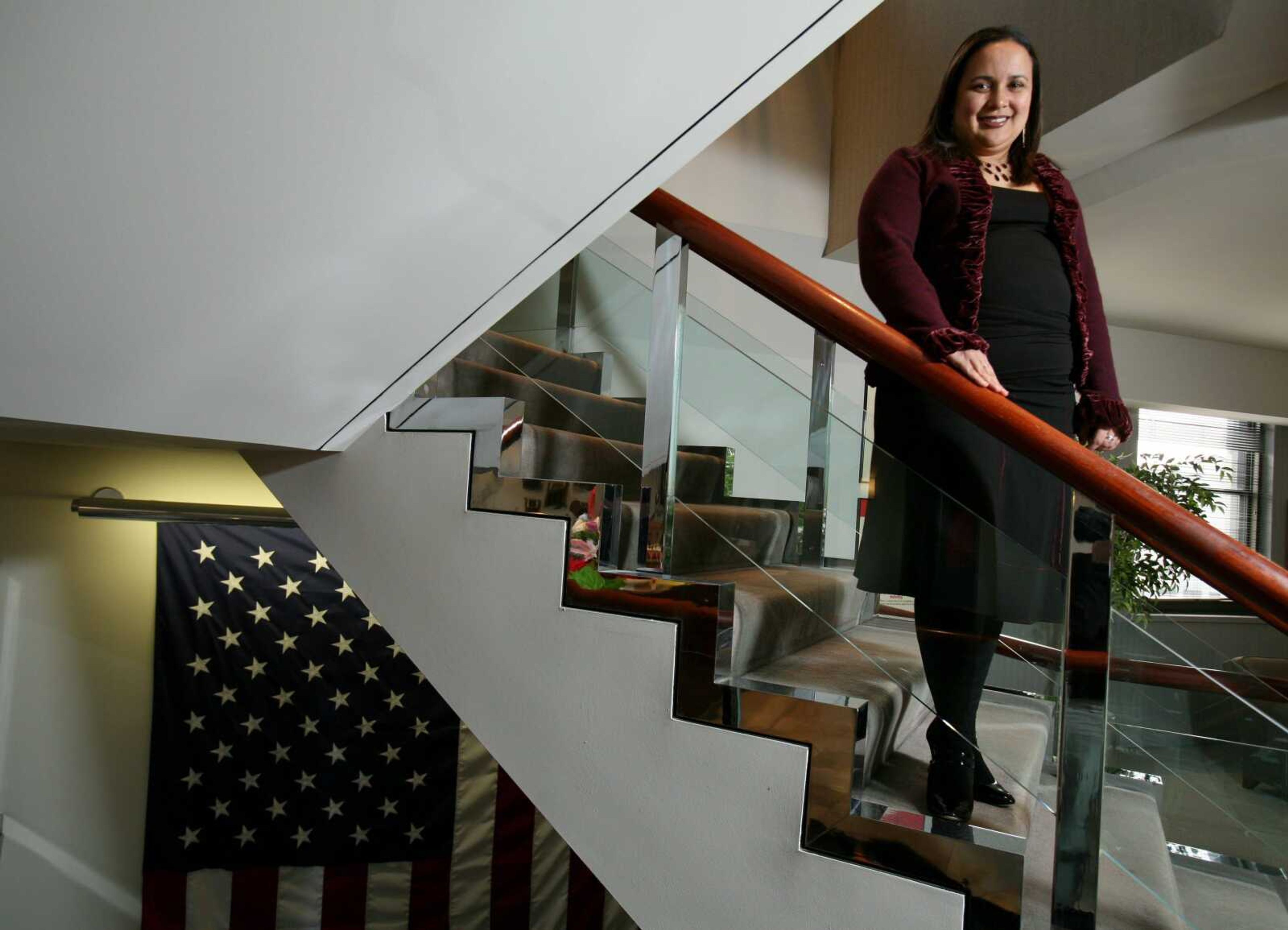St. Louis program aims to attract, retain minorities
ST. LOUIS -- When Courtney Gibson moved to St. Louis two years ago, she relied on a newcomer's program with the St. Louis Business Diversity Initiative to smooth the transition: she made friends, learned how a highway project might affect her commute, asked around about where to get her hair cut...
ST. LOUIS -- When Courtney Gibson moved to St. Louis two years ago, she relied on a newcomer's program with the St. Louis Business Diversity Initiative to smooth the transition: she made friends, learned how a highway project might affect her commute, asked around about where to get her hair cut.
Last year, the Macy's divisional vice president became part of the initiative's first class of 22 fellows, made up of mid-career, minority professionals sponsored by their companies to sharpen their workplace skills as they train for greater responsibilities.
"I definitely think the experience through the St. Louis Business Diversity Initiative allowed me to be connected and engaged in the St. Louis region," said Gibson. And what she learned proved invaluable on the job. "I really saw the return on my company's investment."
The initiative launched in 2001 when several organizations in the region were concerned that talent was leaving for places like Atlanta or Chicago. They sought to do more to keep minority professionals in town and rising into leadership positions.
Its Gateway Connections program helps minorities new to the area learn about the region and get involved in St. Louis events. The Diversity Officers' Network allows executives to share ideas about developing inclusive workplaces.

And the Initiative Fellows Program, which Gibson took part in and which has 30 members this year, allows companies to identify and sponsor employees for training to advance their careers. It costs $2,500 a person. All the participants were black in its first year; the second group also includes a Latino and an Asian-American.
The executive director of the St. Louis initiative, Valerie Patton, said when she was starting out, seeing other people of color succeeding in the workplace helped her realize she could, too. "There's a saying: lift as we climb," she said. "If you have more pull, you can pull more with you."
Patton said many companies are mindful of the importance of diversity in a global economy. The fellows program helps to train a diverse work force for greater leadership positions.
Reggie Farrar, a manager for human resources and safety at BJC Behavioral Health, said some of the sessions he attended as a fellow provided an affirmation for the work he was already doing. Others, he said, dealt with issues like "efficacy," or the effect his effort could have on his outcome and ways he could drive the result.
Another session focused on "personal branding," where participants discussed ways to be purposeful in how they are perceived in their workplace.
Gibson and Farrar said they believe the program benefited their companies, not just them individually. Farrar works for a company with a lot of separate entities, and he said the training helped him to think about strategies that would move the entire organization forward.
Gibson said many of those undergoing the training work for companies with a reach far beyond St. Louis, which means its effects could be felt elsewhere given time.
Patton said change comes with passion, persistence and patience.
"What we're doing is not a quick fix," Patton said. "I'm looking for lasting, sustainable change over time."
Connect with the Southeast Missourian Newsroom:
For corrections to this story or other insights for the editor, click here. To submit a letter to the editor, click here. To learn about the Southeast Missourian’s AI Policy, click here.









